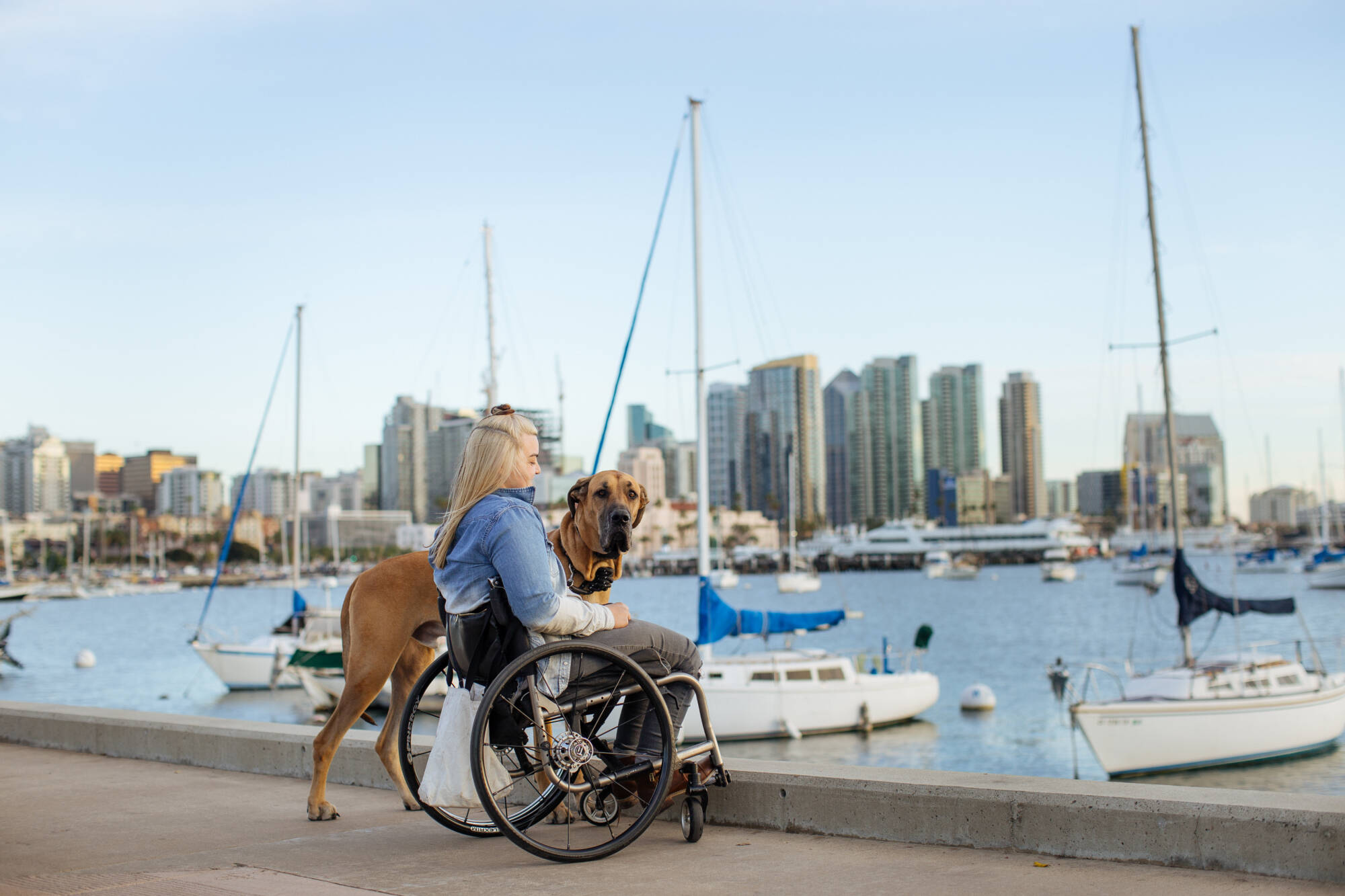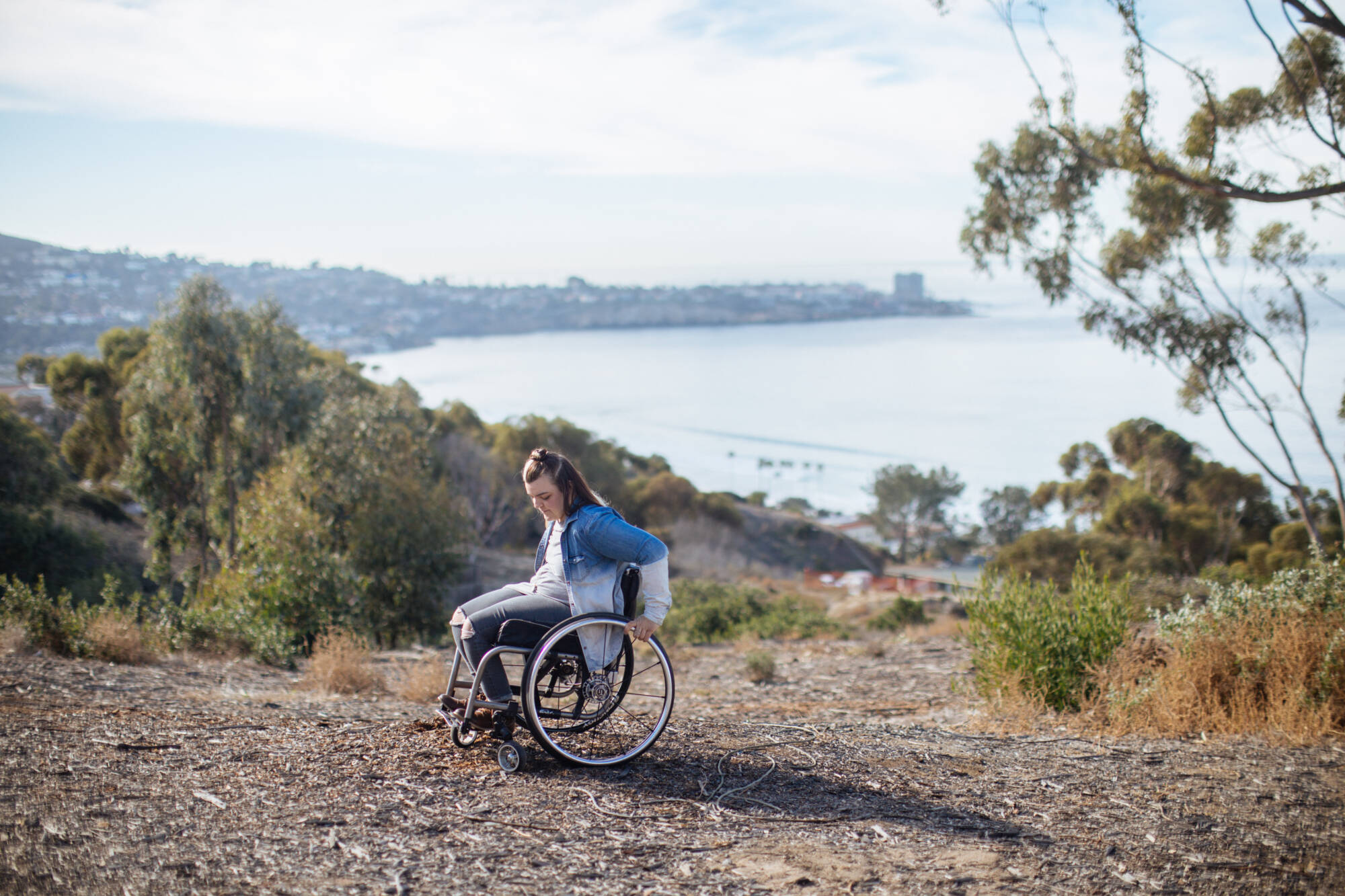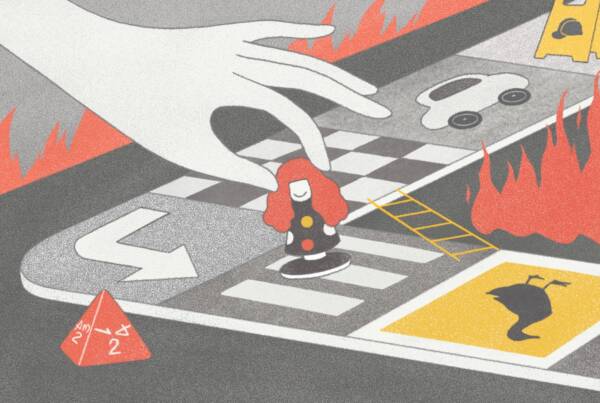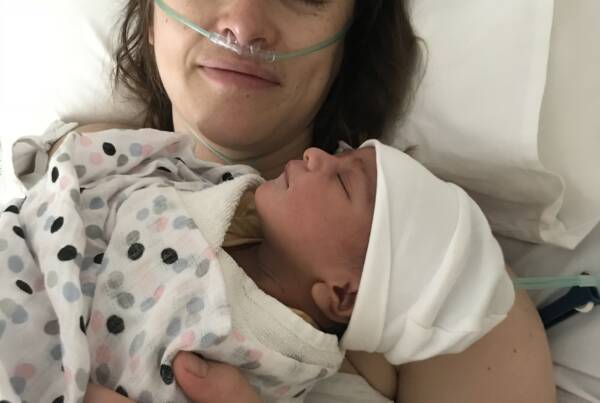Interview of Sid Marcos by Freya Bennett
Hey Sid, how are you?
I’m quite well! Currently in Seattle and there is no rain, so life is good!
Where do you call home?
I’m traveling most of every year, so home is wherever I lay my head. But for the rest of the year I get to call sunny San Diego, California home.
Tell us a little bit about yourself:
I’m 25 and I’m the director of a travel organization called Outlandish. Oh, and I am in a wheelchair—have been my whole life. And I’m proud to call myself part of the Cripple Community 🙂
Tell us a bit about what you do:
So I lead this group of awesome people that are working to change the world through travel. We use a 1:1 model (like TOMS Shoes!) where for every person that travels with us, we give a trip to someone with a physical disability (for free!)
The team and I just started making travel guides, but we spend most of our time leading the group tours all over the world. The tours focus on what we call ’social sustainability’. It just means that while we’re traveling, we’re focusing on doing good. To us that means supporting local businesses, letting go of assumptions we have about other people and places, and making sure that the world is accessible to everyone (specifically wheelchair accessible!)
Where did you get the idea for ‘Outlandish Travel Guides’?
I decided when I was 18 that I didn’t want to go to college. I figured—I know I want to travel and see the world. So I’ll travel for a bit and let that lead me to what I want to do in life.
I traveled for 3 years straight, and it was the best 3 years of my life so far. The people, the environments—the food! I’m constantly amazed by how diverse and wonderful this world is.
But it was also really difficult traveling and using a wheelchair. The world is built around able-bodied people, so accessibility is really an afterthought (or not thought about at all). I wanted to make something that celebrated what I had done and seen over the last 3 years, BUT that also challenged global inaccessibility. We’re using Outlandish as a platform to say “Here’s all the awesome things that disabled (and able-bodied) people can experience all over the world—now let’s change all the places where disabled people are denied access.”
This year we started making travel guides after a successful Kickstarter campaign! The guides came from the belief that everyone should be able to travel like we do. But not everyone has the money to sign up for a trip with Outlandish. So the guides give people access to social sustainability that don’t otherwise have the budget for it.
What has been the best experience for you in researching for ‘Outlandish Travel Guides’?
The best experience—of traveling overall—is the people you meet. It’s heartening to see how open so many people are to sharing their lives, homes, and stories with a total stranger. Even where our experiences are entirely dissimilar, I always get this feeling that there’s a mutual willingness to bridge that gap. Connecting in this way, to me it’s the most profound thing in life.
You reached your Kickstarter goal of $25,000, congratulations! Can you tell us about the experience of crowdfunding?
Yes, we did! After many sleepless nights haha! It was an amazing experience, and a one month-long anxiety attack.
We had 30 days to raise $25,000. The first day we exceeded our stretch goal (with $1000 in the first 10 hours!) and then for like 3 weeks thought we wouldn’t make our goal—which is scary because on Kickstarter if you don’t reach your funding goal, you don’t get any of the money. By Day 21 we were $10,000 short.
So the whole team just went on this massive media attack. We wrote to every newspaper, magazine, and online publication that would run our story—asking people to check out the Kickstarter video and help us reach our goal. We were mass-spamming everyone that’s ever been on the internet to share our story. And it worked! We went viral, got picked up by a couple news stations, and raised the last $10,000 in 9 days.
Crowdfunding is so important because reaching your goal is like having your community say “Yes, we believe in this idea and we want you to make it happen with our support.”
What is your hope for the future with ‘Outlandish’?
I just hope that it receives the kind of attention that it merits. I named it “Outlandish” because the idea of opening up the world like this—to everyone and focusing on doing the right thing—that’s really something crazy. The future of Outlandish really depends on the will of other people to keep it going and keep making the world a better place.
As someone in a wheelchair, why is it important to create travel guides for disabled people?
Everything that I knew about disability growing up was told by able-bodied people. The perception of disability is that it’s bad, shameful to be different, and that having a disability makes you ‘other’. I saw that false representation in movies, in shows, books—really everything. The vast majority of people in wheelchairs in movies or shows are not even actually disabled. To me, this is like Blackface for disabled people. The characters end up becoming caricatures or speculations of the disabled experience.
So I got this idea as a kid that being disabled meant that you should hate your body and yourself. But I didn’t feel that way—I didn’t hate my body, I didn’t hate myself, and, in fact, I really liked being disabled. I felt like in a sea of everyone else being exactly the same, I was the one, and you could immediately recognize had a unique point of view.
Even other disabled people I met were retelling the able-bodied perspective of disability. It was like, they hated themselves and their bodies because they were told by mass culture that they should. And so I tried to distance myself from the image of disability. I thought, like “Yes I am disabled—but I’m not like other disabled people.” I learned much later in life that that’s called ableism.
Can you explain ableism to us?
The simple definition is “discrimination against someone with a disability”.
But that’s really broad and fails to relate how much ableism is built into everything around us.
The way we’re taught to think about disability is, itself, ableist. We’re taught ‘Person A cannot do an activity. THEREFORE, Person A is disabled—incapable’.
But I look at disability through the “Social Model of Disability”—there’s no such thing as a disabled person, there’s only environments that exclude the participation of certain people.
Why do you think ableism hasn’t been as spoken about as much racism or sexism?
Because most disabled people aren’t proud to be disabled like I am. Too many are focused on “finding a cure” for whatever their disability is. For me, there’s no such thing as a cure. As a paraplegic using a wheelchair for my entire life, this is me at 100%.
It’s also a problem that we don’t see people through the lens of the Social Model of Disability. When we talk about racism, we don’t say “Hey, the solution to this issue is to make everyone white”—which is how disability is talked about. The topic is always “The solution to inaccessibility, social exclusion, etc—is to make the disabled person ’normal’.” Which is sooo fucked up.
How can we change the way the media speaks about disabled people?
Only by allowing disabled people to tell their true, lived experiences.
Growing up with a disability, what is something you wish had been different?
I wish I had known there were more people like me that didn’t hate their bodies. I put away so many emotions and couldn’t relate so many of my experiences because I really believed I was the only disabled person in the world that felt like being disabled was okay.
What do you wish you could tell your teenage self?
Don’t read Cosmopolitan, haha. And just be totally fucking weird. It doesn’t matter if no one else is like you or gets you—just be real. Speak true to your experiences and don’t try to cover up anything to seem normal.
If you could change one thing about the world today, what would it be?
How negatively we are told to look at other people. “Otherness”—being disabled, fat, nonwhite, nonbinary, a different religion—whatever—that’s all relative. I wish everyone could experience what it’s like to be part of “the in crowd” and an outcast—that’s such a humbling experience.
What message do you want to send out to girls growing up with a disability?
You are your disability. Don’t let people try to separate you from your experience. It’s so valuable in its wholeness—the pain of it, the exclusion, the uniqueness, and ridiculous situations only you get into—that’s what makes your story awesome. You’re not “broken”, you’re doing everything everyone else does but working 10 times as hard.
Do you have any final words of advice for our readers?
Just be yourself. It’s so cliché to say BUT I hardly see anyone really doing it. Almost every girl I know, still, at 25, thinks she’s going to be happier if she’s skinnier, shaves her legs, wears more makeup—basically looks more like what society tells her to look like. But what’s made me happiest in life was none of that—it was finding out that there were other people that loved being unusual and weird just like me.








